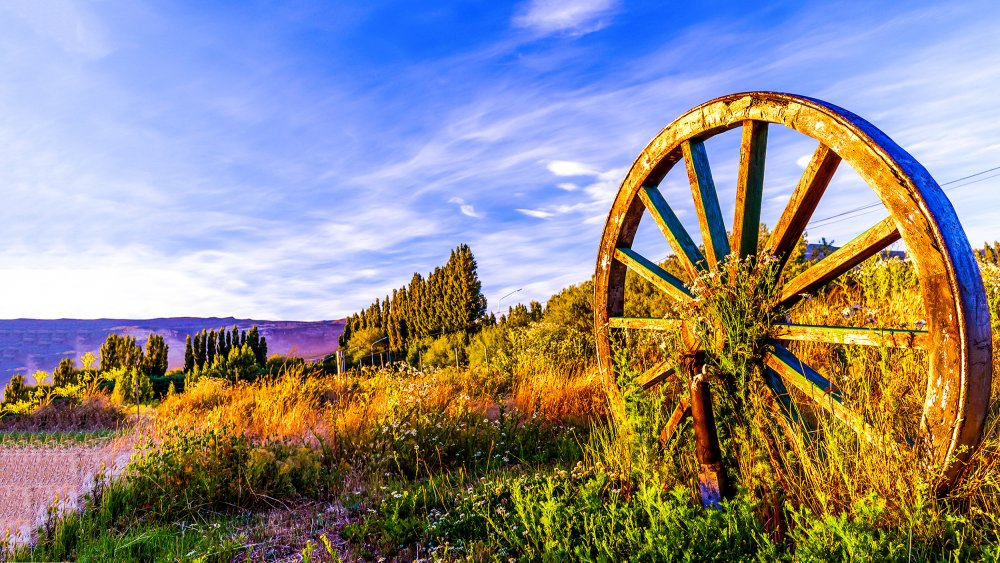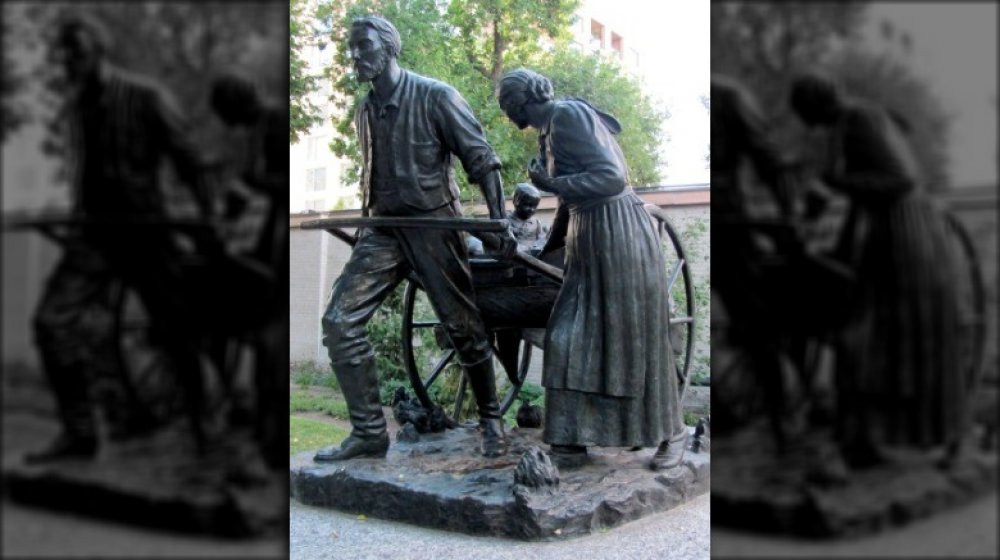The Truth About The Mormon Handcart Tragedy
We're all taught the gruesome details of the Donner Party in history class: the California-bound pioneers who ended up making meals out of each other after they all nearly froze to death on the way. But few are aware of an ever bigger tragedy in the westward migration of the devotees of the Church of Jesus Christ of Latter-Day Saints.
In his 2008 book Devil's Gate: Brigham Young and The Great Mormon Handcart Tragedy, author David Roberts called the event "far and away the most deadly [chapter] in the history of westward migration in the United States." (He must have forgotten about that pesky little blot on American history known as the Trail of Tears, which claimed the lives of over 3,000 Cherokees as they were forced by the U.S. government to walk almost 1,000 miles to their new "home.")
While 42 of the people in the Donner Party died, according The Denver Post, the Mormon Handcart Tragedy resulted in the deaths of almost 250 people, primarily from cold and starvation.
The caravans should have waited for winter to pass
Led by captains James Willie and Edward Martin, the doomed caravans of British and Scandinavian immigrants who had converted to Mormonism left Florence, Nebraska, in August 1856, according to WyoHistory. The Mormon church had started recruiting converts from Europe by this time, since most of the American Mormons had already moved out to Utah and founded Salt Lake City. In order to attract new converts to come help build their new religious paradise, the church offered to pay people's way out to the middle of nowhere, but drought and famine had done a number on its ability to collect tithes from its members. It was forced to cut costs somewhere.
Enter the bright idea of handcarts. Church leaders thought it would be easy enough for the new converts to just haul all their stuff out West just as winter was coming on. They maybe should have prayed — or at least thought — about it first.
Well, someone did. A sub-captain named Levi Savage warned the Willie party before they departed that they "were liable to have to wade in snow up to our knees, and should at night rap ourslevs [sic] in a thin blanket." He saw the lack of logic in embarking so late in the season, but his words went unheeded, and those hundreds of deaths became another one of the messed up things that actually happened on the Oregon Trail.

